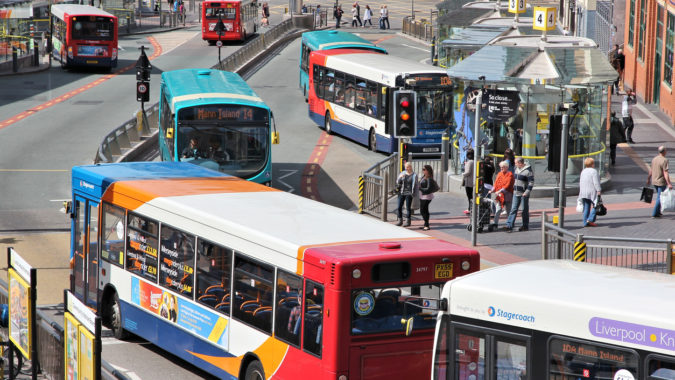In March 2016, the National Infrastructure Commission was asked to consider how to maximise the potential of the Cambridge- Milton Keynes- Oxford corridor as a single, knowledge-intensive cluster that competes on a global stage, protecting the area’s high quality environment, and securing the homes and jobs that the area needs.
Today, Wednesday 16 November, the NIC publishes its interim findings.
The Commission’s central finding is that a lack of sufficient and suitable housing presents a fundamental risk to the success of this area. Without a joined-up plan for housing, jobs and infrastructure across the corridor, it will be left behind its international competitors. By providing the foundations for such a strategy, new east-west transport links present a once in a generation opportunity to secure the area’s future success.
This interim report makes practical recommendations to that end:
- Government should go ahead with East West Rail’s initial phase, a new link cutting journey times by more than half on the route from Oxford to Bedford and Milton Keynes, ensuring it is delivered before 2024; and it should invest in developing as soon as possible detailed plans for both the next phase of East West Rail (which would complete the link to Cambridge) and for a new Oxford-Cambridge Expressway.
- Plans for these major new transport links should be drawn up with the specific intention of securing the tens of thousands of new homes this area needs.
- Local authorities, Local Enterprise Partnerships, key government departments and national delivery agencies, should work together to develop a strategic vision for housing, jobs and infrastructure across the corridor, as well as proposals for the joint governance arrangements required to deliver co-ordinated planning. This should include the consideration of ambitious new delivery mechanisms, such as development corporations focused on new transport hubs and interchanges. The quality of infrastructure and its impact on maintaining and enhancing the built environment of the corridor should be central to any strategic plan for the area.
In the second phase of this study, the National Infrastructure Commission will work with local and national government, and other stakeholders, to put this strategy in place.
Releasing the report, NIC Deputy Chair, Sir John Armitt said:
“To succeed in the global economy, the UK must build on its strengths. The corridor connecting Cambridge, Milton Keynes and Oxford could be Britain’s Silicon Valley – a globally recognised centre for science, technology and innovation. But its future success is not guaranteed.
“Transport links across the corridor are often slow, unreliable and congested, and the area is home to two of the least affordable cities in the UK, in part because it has consistently failed to build the homes it needs. These twin failings are already increasing costs for businesses and diminishing their ability to attract employees at all levels – including the recruitment and retention of globally mobile talent.
“This area can become greater than the sum of its parts with better strategic planning which radically improves its transport connectivity whilst securing the tens of thousands of new homes it so desperately needs. East West Rail and the Oxford-Cambridge Expressway, can be a catalyst to bring the region together to deliver the housing and connectivity it will need to compete with the best in the world.
“This is a once in a generation opportunity – we must grab it with both hands.”
NIC Interim Report: In Brief
To succeed in the global economy, Britain must build on its strengths. The corridor connecting Cambridge, Milton Keynes and Oxford could be the UK’s Silicon Valley – a world renowned centre for science, technology and innovation. But its future success is not guaranteed.
The Commission’s central finding is that a lack of sufficient and suitable housing presents a fundamental risk to the success of the area. Without a joined-up plan for housing, jobs and infrastructure across the corridor, it will be left behind by its international competitors. By providing the foundations for such a strategy, new east-west transport links present a once-in-a-generation opportunity to secure the area’s future success.
A LACK OF HOUSING AND CONNECTIVITY ARE PUTTING FUTURE SUCCESS AT RISK
The Cambridge-Milton Keynes-Oxford corridor faces a chronic undersupply of homes made worse by poor east-west transport connectivity. Two of the least affordable cities in the UK lie within the corridor, and the area as a whole has consistently failed to build the number of homes it needs.
That shortage puts sustained growth at risk. It is already increasing costs for businesses and diminishing their ability to attract employees at all levels – including the recruitment and retention of globally mobile talent.
A JOINED-UP STRATEGY LINKING INFRASTRUCTURE AND HOMES
Investment in infrastructure, including enhanced east-west transport links, can help to address these challenges, but it must be properly aligned with a strategy for new homes and communities, not developed in isolation. This means local authorities working in partnership, and with national government, to plan places, homes and transport together. Current governance mechanisms are not sufficient to deliver the step-change in strategic leadership and collaboration needed.
A ONCE–IN-A-GENERATION OPPORTUNITY
Planning for East West Rail and the Oxford-Cambridge Expressway should be taken forward urgently. These are once-in-a-generation investments that will deliver substantial national benefits and, if designed properly, can provide the foundations for the corridor’s long-term prosperity: unlocking housing sites, improving land supply, and supporting well-connected and sensitively designed new communities, whilst bringing productive towns and cities closer together.
This corridor is a national asset, that competes on the world stage and can fire the British economy – but only with an integrated and ambitious strategy to deliver new homes, connectivity and opportunities can it realise its full potential.
In the second phase of this study, the National Infrastructure Commission will work with local and national government, and other stakeholders, to put this strategy in place.



